
Why Organizations Struggle With Data Quality
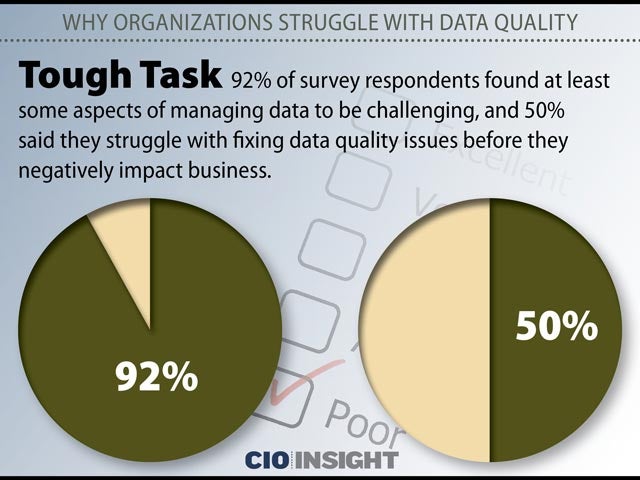 Tough Task
Tough Task
92% of survey respondents found at least some aspects of managing data to be challenging, and 50% said they struggle with fixing data quality issues before they negatively impact business.
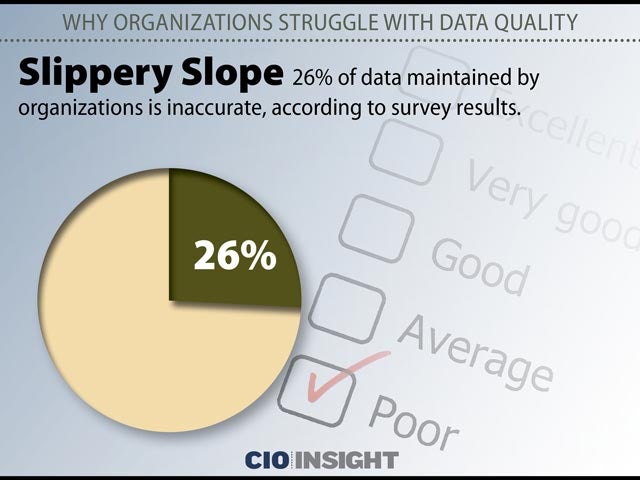 Slippery Slope
Slippery Slope
26% of data maintained by organizations is inaccurate, according to survey results.
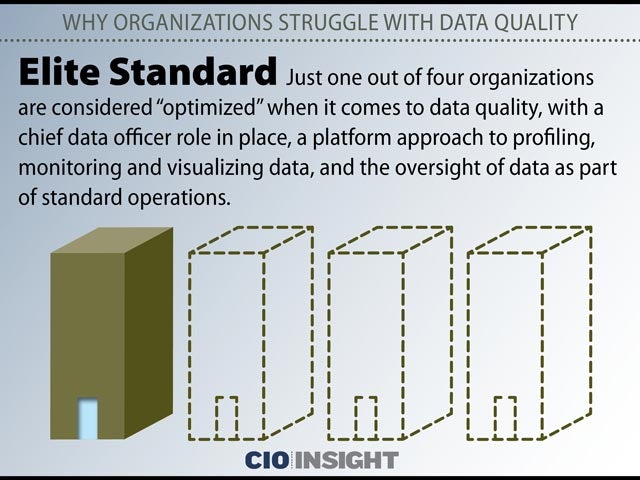 Elite Standard
Elite Standard
Just one out of four organizations are considered “optimized” when it comes to data quality, with a chief data officer role in place, a platform approach to profiling, monitoring and visualizing data, and the oversight of data as part of standard operations.
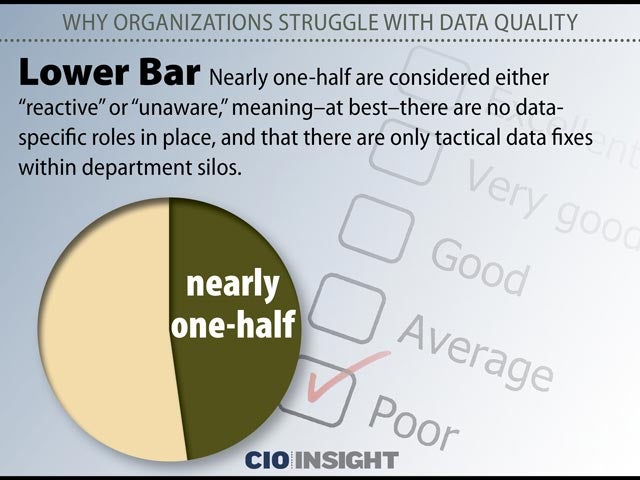 Lower Bar
Lower Bar
Nearly one-half are considered either “reactive” or “unaware,” meaning–at best–there are no data-specific roles in place, and that there are only tactical data fixes within department silos.
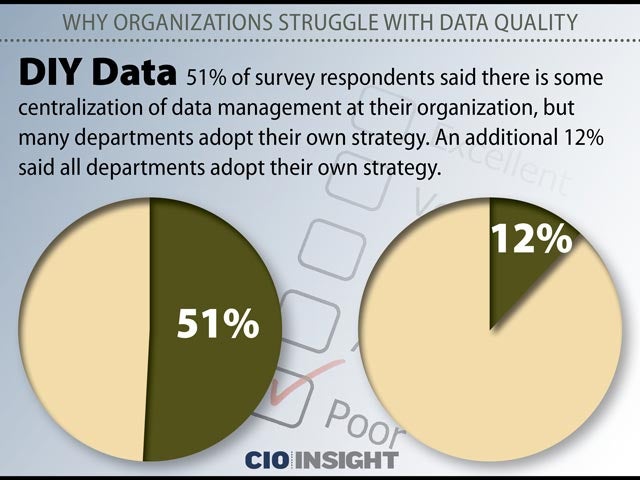 DIY Data
DIY Data
51% of survey respondents said there is some centralization of data management at their organization, but many departments adopt their own strategy. An additional 12% said all departments adopt their own strategy.
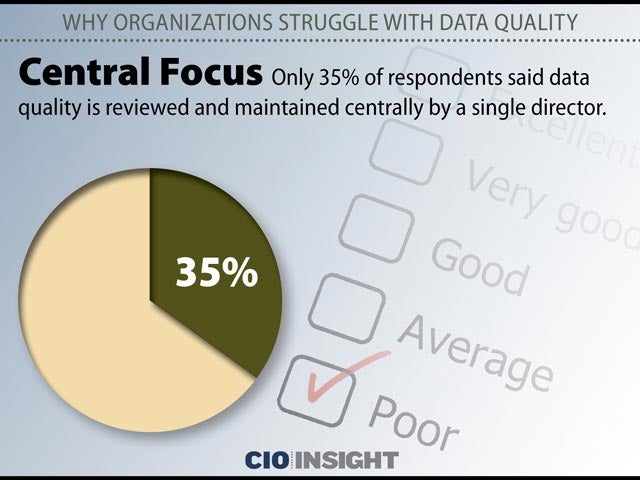 Central Focus
Central Focus
Only 35% of respondents said data quality is reviewed and maintained centrally by a single director.
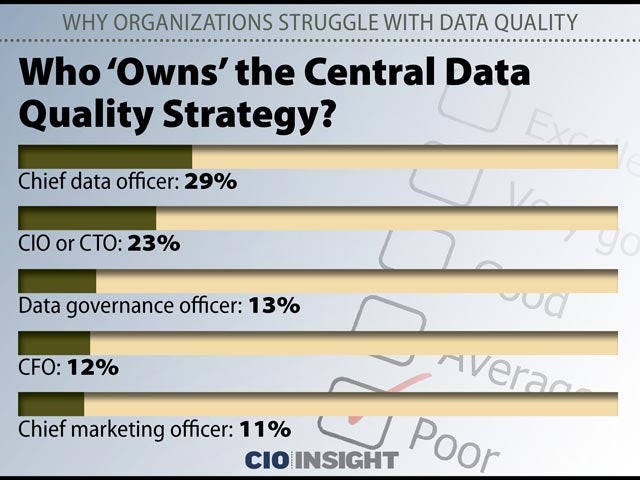 Who ‘Owns’ the Central Data Quality Strategy?
Who ‘Owns’ the Central Data Quality Strategy?
Chief data officer: 29%, CIO or CTO: 23%, Data governance officer: 13%, CFO: 12%, Chief marketing officer: 11%
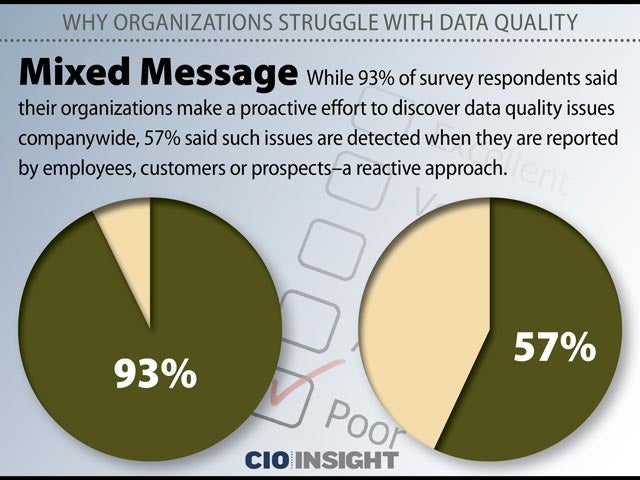 Mixed Message
Mixed Message
While 93% of survey respondents said their organizations make a proactive effort to discover data quality issues companywide, 57% said such issues are detected when they are reported by employees, customers or prospects–a reactive approach.
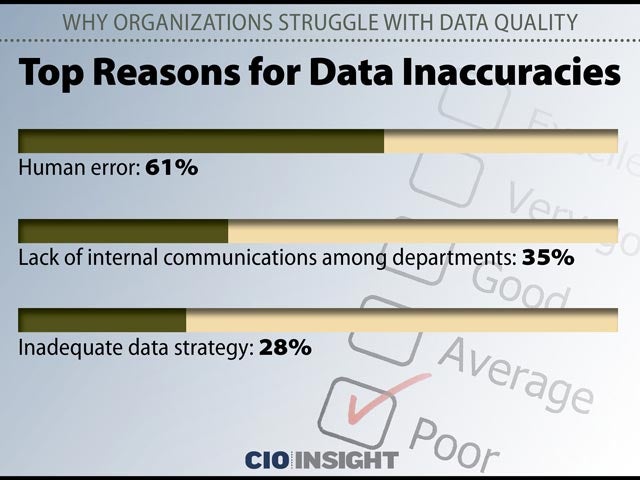 Top Reasons for Data Inaccuracies
Top Reasons for Data Inaccuracies
Human error: 61%, Lack of internal communications among departments: 35%, Inadequate data strategy: 28%
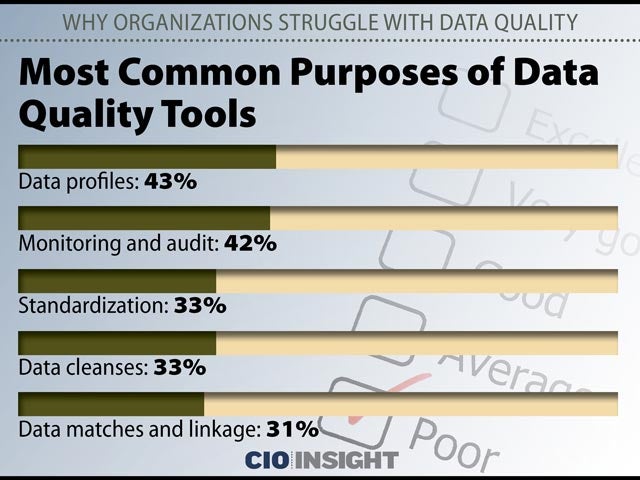 Most Common Purposes of Data Quality Tools
Most Common Purposes of Data Quality Tools
Data profiles: 43%, Monitoring and audit: 42%, Standardization: 33%, Data cleanses: 33%, Data matches and linkage: 31%